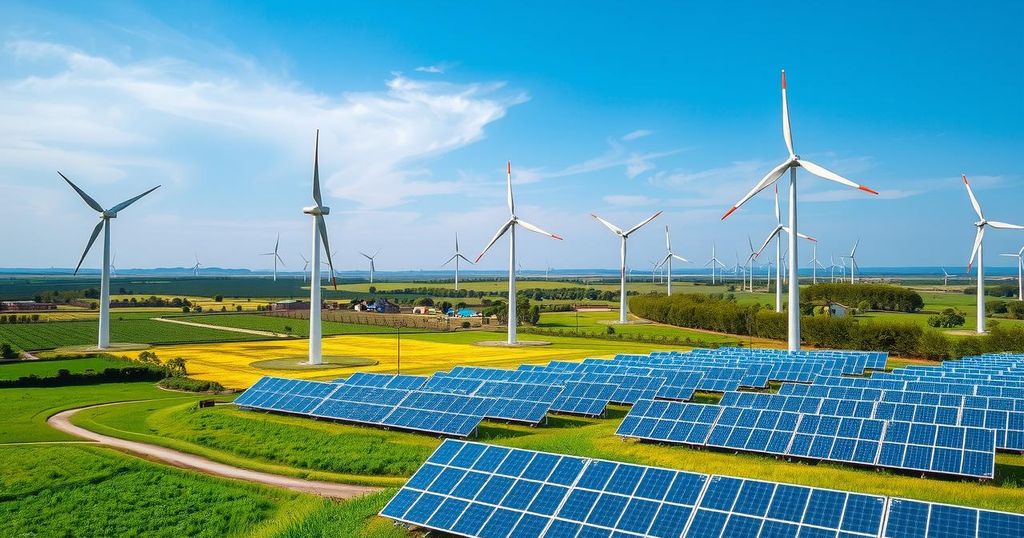Wärtsilä Report Proposes 100% Renewable Energy for Nigeria by 2060
Wärtsilä’s report outlines a roadmap for Nigeria to transition to a 100% renewable energy system by 2060, necessitating 1,200 GW of renewable capacity and substantial investments. The proposal emphasizes the role of domestic gas as a transitional fuel, with expected reductions in electricity costs and carbon emissions. The plan requires policy reforms to attract investment for realization.
Wärtsilä, a global technology group, has released a report titled “Nigeria Leading Africa to Net Zero,” which outlines a roadmap for Nigeria to achieve a 100% renewable energy power system by 2060. This strategy not only addresses the increasing energy demands but also aims to secure universal electricity access for all citizens. The report emphasizes the importance of a data-driven, cost-effective energy strategy which is crucial for Nigeria’s energy transition.
According to the findings, Nigeria’s optimal power system will necessitate the installation of 1,200 GW of renewable energy capacity, complemented by 283 GW of energy storage and 34 GW of engine-based power plants for grid stability. Such investments in renewable sources and gas engine flexibility are projected to reduce electricity generation costs by 74% by 2060 and eliminate carbon emissions entirely. This strategy prioritizes efficiency and reliability in Nigeria’s energy supply.
The report further identifies the significance of Nigeria’s domestic gas reserves, which can serve as a cost-effective transitional fuel to support renewable energy generation. This would facilitate the operation of balancing engines until those engines can be converted to operate on green hydrogen, projected to begin in the early 2040s. Such a transition underscores the dual role of gas in enhancing the reliability of future renewable systems.
Wale Yusuff, Managing Director of Wärtsilä in Nigeria, stated, “If the power system expansion roadmap presented to the report is successfully implemented, by 2060 Nigeria’s power system will be fully decarbonized.” Furthermore, he expressed optimism for achieving universal electricity access by 2032, eliminating the reliance on inefficient diesel generators. However, this ambitious plan demands considerable investment, estimated at $18.7 billion by 2030 and $425 billion by 2060.
To mobilize the necessary funds, significant policy reforms are essential. Mr. Yusuff highlighted, “Attracting that level of investment is possible, but not without significant policy reforms.” He noted that although the government is working to strengthen the legal framework, the existing complexities add excessive risk for developers. With its ample natural resources and potential for renewable energy, Nigeria stands poised for a successful energy transition, provided it enhances its infrastructure and adopts a robust policy framework.
In summary, Nigeria has the potential to achieve a fully renewable energy system by 2060 through substantial investments and strategic planning. The roadmap presented by Wärtsilä outlines the necessary capabilities, including a significant expansion of renewable sources, energy storage, and the transition to sustainable power solutions. However, the success of this initiative hinges on attracting investment and implementing essential policy changes to reduce risks for project developers.
Original Source: www.itnewsafrica.com




Post Comment